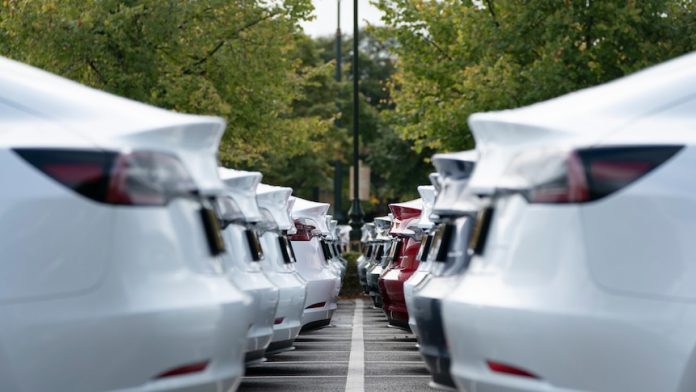The conversation about electric vehicles was fueled by the government’s announcement that it would invest $ 250 million in charging infrastructure for cars in Australia.
But the government’s “future fuel strategy” has arrived with missing parts, particularly a long-term goal for the industry to sell electric vehicles.
At the international climate summit COP26 in Glasgow tomorrow, the UK and several other nations pledge to ban the sale of gasoline cars in developed countries by 2035 and in developing countries by 2040.
And more than 20 nations have already announced that they will take gasoline-powered vehicles out of circulation even earlier.
The automakers themselves are switching their fleets to electric, with Volvo, Ford in Europe, and even Rolls Royce pledging to sell all-electric vehicles by 2030, and many other manufacturers, including General Motors and Volkswagen, shortly afterwards.
The race is on to take off the gas.
But Australia is just leaving the starting line.
Leading car markets already sell mostly electric
According to the Federal Chamber of the Automotive Industry, only 0.8 percent of the new light vehicles sold in Australia this year were electric.
What is preventing Australian drivers from buying electric cars?
Price and range concerns are the top concerns Australian drivers have when considering buying an electric car.
Continue reading
While that’s twice as many as last year, it is behind the global trend that 4 percent of new cars sold are electric vehicles, and even further behind the trends in Europe and the UK, where every tenth car bought is electric.
In Norway, the world market leader, three quarters of all new cars sold were electric last year.
And sales of electric vehicles continued to grow, outperforming sales of gasoline vehicles. Despite the pandemic, electric car sales have increased while gasoline car sales have decreased.
Many of the nations planning to sign the gasoline car ban also have better charging infrastructure in place.
According to The Blueprint Institute, Australia had fewer than 100 public charging stations per million inhabitants last year, compared to more than 400 chargers per million inhabitants in Europe.
Australia needs more charging infrastructure for cars to support a growing EV market.AP: From Han Guan)
Even the United States, which is similarly lagging behind in adopting electric vehicles and does not intend to sign the gasoline vehicle ban in 2035, has about twice as many chargers for its population as Australia.
Why isn’t Australia signing up?
To remove gasoline vehicles from Australian car parks by 2035, Australia’s ambitions would have to be seriously increased.
The government has firmly refused to establish a policy that could force Australians to adopt zero-emission cars, saying instead that people should be able to buy what they want.
“We’re not going to tell them what to buy, tell them where to go, we’re not going to tell them how to live their lives,” said Prime Minister Scott Morrison.
“Australians will make their own decisions.”
The Federal Labor Authority has also not committed itself to introducing a sales target, although its now-dropped election policy of 2019 had suggested that half of all new cars should be electric by 2030.
But several states have set goals to go electric. The ACT, which leads the country in sales of electric cars by population, has set itself the goal that all new cars should be emission-free by 2030.
More than one in ten cars on European roads will be electric by 2030, but Australian forecasts are less ambitious.Delivered: Victoria infrastructure)
While the federal government won’t follow the example of the states in setting a formal sales target, in a February discussion paper on its future fuel strategy, it tacitly predicted that it expects one in four cars sold by 2030 to be electric.
Industry groups say Australia’s current policy is unlikely to see numbers like this.
The Electric Vehicle Council has advocated discounts, tax exemptions, and emissions targets to drive change in the auto market.
The EV Council says that without these, Australia’s auto market will continue to lag behind the rest of the world.

